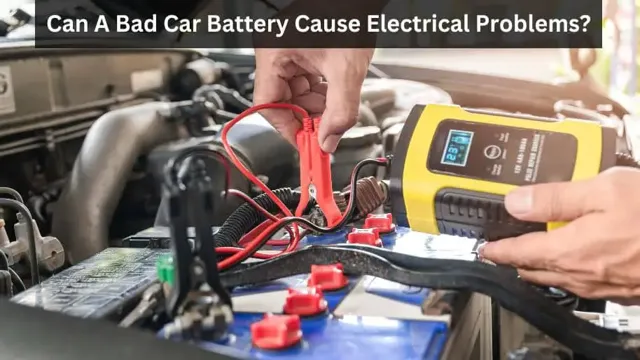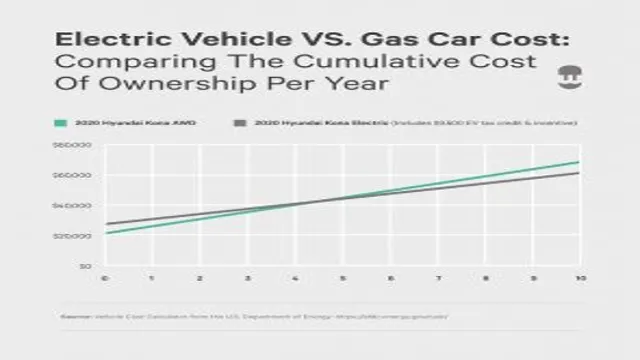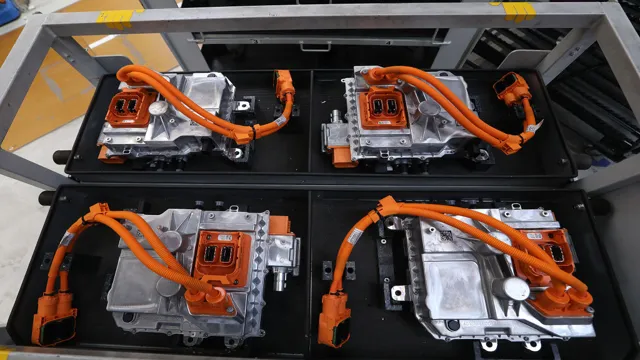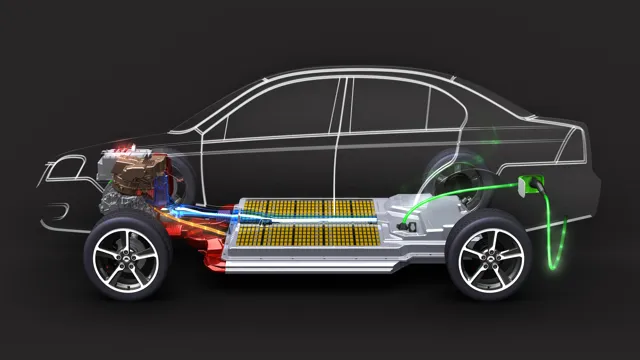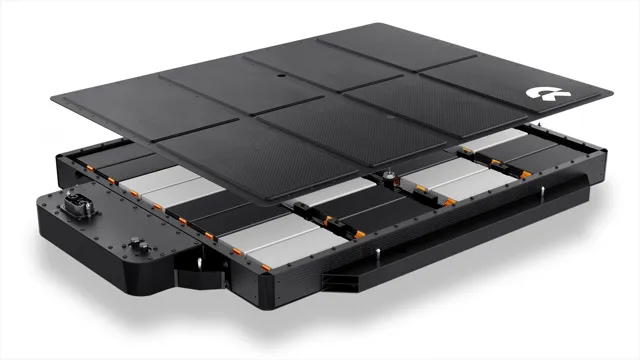Unpacking the Mystery: Can a New Car Battery Trigger Electrical Problems?
Are you experiencing electrical problems with your car even after installing a new battery? It can be frustrating to think that a fresh battery would solve all your electrical malfunctions, but unfortunately, that isn’t always the case. While a faulty battery can be the root of certain issues, there are quite a few other culprits to consider. Electrical problems in cars can range from minor annoyances, like difficulty starting or dimming headlights, to more significant issues, such as engine stalling or full system failure.
It’s important to figure out the underlying cause of these problems to diagnose and fix them effectively. So, if it isn’t just the battery, what could be causing your car’s electrical issues? It could be anything from corroded battery terminals to a malfunctioning alternator. Additional factors like a bad starter or damaged wiring can also contribute to your vehicle’s problems.
Think of your car’s electrical system like a puzzle; each piece plays an essential role in the bigger picture. A faulty piece could affect the entire system, causing unexpected issues. That’s why it’s crucial to have a professional diagnose your car’s electrical problems to locate the root of the issue and efficiently solve it.
In the following blog post, we’ll dive into common electrical issues that could be causing problems with your car, even after installing a new battery. We’ll cover symptoms to look out for and ways to tackle each problem. So buckle up, sit back, and get ready to learn more about your car’s electrical system.
Possible Causes of Electrical Problems
Yes, a new car battery can sometimes cause electrical problems. While a new battery is supposed to provide sufficient power for a car’s electrical systems, it is possible for it to affect the car’s electrical components negatively. One of the most common causes of electrical problems linked to a new car battery is incompatibility.
If the battery is not the right voltage, size, or type for a car’s make and model, it can damage the electrical systems. Similarly, a low-quality battery or one that hasn’t been stored correctly can fail prematurely, leading to electrical problems. Additionally, a weak alternator can cause the battery to overcompensate while charging, leading to electrical problems down the line.
Therefore, if your car has been experiencing electrical problems shortly after a new battery installation, consult a professional mechanic for a thorough diagnosis.
Loose/bad connections
One of the most common causes of electrical problems is loose or bad connections. Over time, the wires in your electrical system can come loose, causing intermittent or permanent power failure. Loose connections can also create arcing, which can be a serious fire hazard.
If you notice flickering lights, circuits that don’t work, or other signs of electrical trouble, check your connections first. It’s easy to tighten loose connections with a screwdriver, but be sure to turn off the power first. Loose connections can also cause power surges, which can damage your electronics.
In some cases, you may need to replace the wire or the entire connection to fix the problem. If you’re not comfortable handling electrical repairs on your own, call a licensed electrician. They can diagnose the issue and make the necessary repairs to keep your home safe.
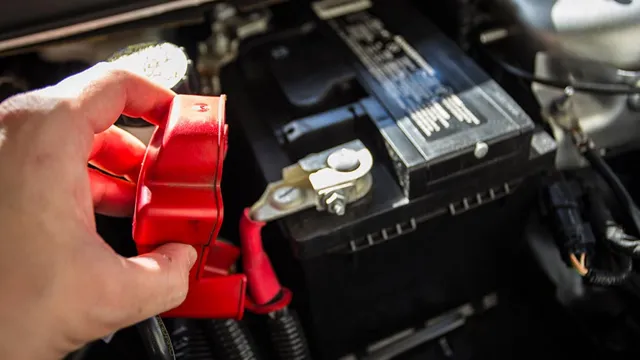
Dirty battery terminals
One of the common culprits of electrical problems in vehicles is dirty battery terminals. Over time, corrosion and grime can build up on the terminals, impairing the flow of electricity and weakening the battery’s ability to power essential components. If you notice that your car is having trouble starting, or the headlights seem to be faint, it is worth checking the battery terminals for any signs of buildup.
A simple way to clean them is by mixing baking soda and water, applying it to the terminals, and scrubbing gently with a wire brush. Regular maintenance of the battery terminals can help prevent larger electrical issues in the future. Don’t overlook the importance of keeping them clean and functioning properly as it could save you from bigger car trouble such as alternator failure, faulty starters, or electrical shorts.
Corroded wires
One of the possible causes of electrical problems is corroded wires. Corrosion is a natural occurrence that happens over time, and it can cause a lot of electrical issues. When wires corrode, the metal on the wire’s surface deteriorates, which can lead to poor electrical contact and connectivity issues.
In some cases, corroded wires can even cause dangerous electrical shorts that can potentially lead to fires. Corrosion can happen due to a variety of reasons, such as exposure to moisture or harsh chemicals. If you suspect that your wires are corroded, it’s best to call an electrician to assess the damage and replace the affected wires as soon as possible.
Remember, it’s always better to be safe than sorry when it comes to electrical problems.
Can a New Car Battery Cause Electrical Issues?
It is not common for a new car battery to cause electrical problems, but it can happen on rare occasions. The most common issue that can arise from a new car battery is a reversed polarity. This happens when the positive and negative cables are connected to the wrong terminals, which can cause a short circuit and damage to the electrical system.
Another issue that can occur is an improper installation of the battery, which can lead to loose connections or a faulty grounding system. If you experience any electrical issues after installing a new battery, it’s best to have a professional mechanic take a look to determine the root cause and prevent any further damage to your vehicle. So, it’s important to ensure that the installation of a new car battery is done correctly, or else it can lead to unforeseen electrical problems.
Short answer: yes
Yes, a new car battery can cause electrical issues in your vehicle. This is because a new battery, like any other electrical component, can fail due to manufacturing defects or other issues. When a car battery fails, it can cause electrical problems in your car because the battery is responsible for powering the electrical system.
A bad battery can cause your car’s electrical system to short circuit, blow fuses, or even damage other parts of your car’s electrical system. It’s important to have your battery checked regularly to ensure that it is functioning properly and to replace it if it’s found to be faulty. With proper maintenance and care, you can avoid potential electrical issues that can be caused by a bad car battery.
Possible explanations for new battery-related issues
It can be frustrating to experience electrical issues in your car, especially if they seem to come out of nowhere. One possible explanation for these issues is a faulty or improperly installed new car battery. While it may seem counterintuitive, a new battery can actually cause problems if it is not compatible with your vehicle or is installed incorrectly.
This can lead to issues with the electrical system, including the alternator, starter motor, and other components. Additionally, a new battery that is not properly maintained can quickly lose its charge and cause issues with starting your engine. So, while a new battery can be a great way to improve the performance of your car, it is important to make sure that it is the right one for your vehicle and is installed correctly.
By doing so, you can help avoid any potential electrical issues and keep your car running smoothly.
Mismatched battery type/size
If you’ve recently replaced your car battery and are experiencing electrical issues, it’s possible that the replacement battery you’ve gotten is the wrong type or size for your car. A mismatched battery can cause a variety of problems, including issues with your car’s electrical system. This can lead to problems with starting your car, dimming headlights, and even problems with your radio or other electronic components.
It’s important to make sure that you’re getting the right battery for your car and that it’s properly installed to avoid any issues down the line. It’s a good idea to consult with a professional if you’re unsure about which battery is right for your car. So, before jumping to conclusions and assuming that your electrical issues are caused by something else, make sure to double-check your battery!
Defective battery
Having a defective battery can cause a wide range of issues in your car, and it’s not uncommon for a new car battery to cause electrical problems. While it may seem counterintuitive, a new battery can be defective, leading to several issues such as failure to hold a charge or an inability to start the car’s engine. Additionally, a faulty battery can cause electrical issues like flickering lights, misfiring of the ignition system, or even blown fuses.
It’s important to note that most car batteries come with a warranty, so if you experience any issues with a new battery, you should contact the manufacturer or the retailer immediately. It’s best to check your battery’s health regularly to avoid any untoward incidents while driving on the road. Remember, a minor battery issue can lead to a major electrical issue if left unattended.
Steps to Address Battery-Related Electrical Problems
Although it’s rare, a new car battery can cause electrical problems. This can happen if the battery is faulty or if it’s not compatible with your car’s electrical system. A bad battery can cause all sorts of problems, from erratic engine performance to electrical malfunctions like lights turning on and off randomly.
If you suspect that your new battery is causing problems, the first step is to take it back to the supplier and have it tested. If it’s determined that the battery is faulty, it should be replaced. However, if the battery is fine, there could be a deeper issue with your car’s electrical system that needs to be addressed.
It’s important to find a reliable mechanic who can diagnose and fix any electrical problems to ensure that your car is running safely and smoothly. In either case, don’t ignore electrical issues, as they can lead to more serious problems down the line.
Check connections and cables
When facing battery-related electrical problems, one of the first steps to take is to check the connections and cables. These components ensure that your battery is getting enough power to operate your vehicle, and if they are loose or damaged, it can result in electrical issues. A loose cable can cause intermittent electrical problems, while a damaged one might cause the battery not to charge at all.
Therefore, it’s important to check the connections and cables regularly, especially if you notice any signs of electrical problems. You can start by visually inspecting the cables and connections for any signs of corrosion, looseness, or damage. Additionally, you can use a multimeter to measure the voltage of your battery and ensure that it’s getting enough power.
If you identify any issues, it’s wise to replace the damaged parts promptly to avoid further issues down the line. Overall, regularly checking and maintaining your battery’s connections and cables can go a long way in preventing electrical problems.
Inspect and clean battery terminals
If you’re experiencing battery-related electrical problems with your car, it’s vital to know the steps to address the issue properly. One of the most common reasons for this issue is dirty or corroded battery terminals, which hinders the battery from connecting entirely to the vehicle’s electrical systems. If the battery terminals appear dirty, removing them, and cleaning the terminals with a battery brush and a mixture of baking soda and water will solve the problem.
If you detect any corrosion, use a wire brush to lightly scrub the terminals’ surface. Don’t forget to check the wires that fasten to the terminals as well, and ensure they are secure and free of corrosion as well. Once you have cleaned the terminals and wires, reconnect the battery, and use a battery terminal protectant spray to prevent further corrosion.
This simple routine can improve the health of your battery and save you the hassle of any future electrical problems.
Replace defective parts
When it comes to addressing battery-related electrical problems, replacing defective parts is a crucial step. Defective parts that are not functioning properly can drain the battery, cause electrical malfunctions, and even put the safety of the vehicle’s occupants at risk. Some common defective parts that can lead to battery-related electrical problems include alternators, starters, and battery cables.
These parts are responsible for generating and transmitting electrical power throughout the vehicle. If any of these parts are faulty, it can cause significant damage to the electrical system and even lead to a complete breakdown of the vehicle. Therefore, it is essential to replace any defective parts promptly to ensure the safety and reliability of your vehicle.
Always consult a qualified mechanic to diagnose any battery-related electrical problems and to replace defective parts to avoid further damage.
Conclusion: Stay on Top of Autos’ Electrical Health
In conclusion, while it is rare for a new car battery to cause electrical problems, it is not entirely impossible. As with any new product, there is always the potential for manufacturing defects or improper installation. However, it is important to remember that the vast majority of issues related to car batteries stem from lack of maintenance or wear and tear over time.
So, if you want to stay on the road to a smooth ride, be sure to keep your battery in tip-top shape, and if you do encounter problems, don’t be shocked – just call in an expert to help sort things out!”
FAQs
Can a new car battery cause electrical problems?
Yes, a new car battery can cause electrical problems if it is faulty or improperly installed. It can also cause issues if it is not the correct battery for your vehicle.
How can you tell if your car battery is causing electrical problems?
If your car is suddenly experiencing electrical issues after you have replaced the battery, it could be a sign that the new battery is causing problems. Other signs include flickering headlights, dimming interior lights, and difficulty starting the car.
What should you do if you suspect a new car battery is causing electrical problems?
If you suspect that your new car battery is causing electrical problems, it is best to have it checked by a professional mechanic. They can test the battery, the charging system, and other electrical components to determine the cause of the problem.
How can you prevent a new car battery from causing electrical problems?
To prevent a new car battery from causing electrical problems, make sure it is the correct battery for your vehicle and that it is installed properly. You should also have your charging system checked by a professional mechanic to ensure that it is working correctly.
